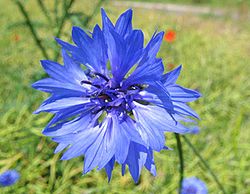
Back القومية الألمانية في النمسا Arabic Deutschnationalismus German Γερμανικός εθνικισμός στην Αυστρία Greek Nacionalismo alemán en Austria Spanish Nationalisme allemand en Autriche French Nacionalismo alemán en Austria Galician Nasionalisme Jerman di Austria ID Германски национализам во Австрија Macedonian Пангерманизм в Австрии Russian Nacionalizmi gjerman në Austri Albanian

German nationalism (German: Deutschnationalismus) is a political ideology and historical current in Austrian politics. It arose in the 19th century as a nationalist movement amongst the German-speaking population of the Austro-Hungarian Empire. It favours close ties with Germany, which it views as the nation-state for all ethnic Germans, and the possibility of the incorporation of Austria into a Greater Germany.
Over the course of Austrian history, from the Austrian Empire, to Austria-Hungary, and the First and the Second Austrian Republics, several political parties and groups have expressed pan-German nationalist sentiment. National liberal and pan-Germanist parties have been termed the "Third Camp" (German: Drittes Lager) of Austrian politics, as they have traditionally been ranked behind mainstream Catholic conservatives and socialists.[1][2] The Freedom Party of Austria, a far-right political party with representation in the Austrian parliament, has pan-Germanist roots.[3] After the Second World War, both pan-Germanism and the idea of political union with Germany became unpopular due to their association with Nazism, and by the rising tide of a civic Austrian national identity.
- ^ Kamps, Stephan (2007). Die Freiheitlichen – Nazistische Reinkarnation oder politische Erneuerung? (in German). GRIN Verlag. pp. 27–31. ISBN 9783638715454.
- ^ Voithofer, Richard (2000). Drum schliesst Euch frisch an Deutschland an . (in German). Böhlau Verlag. p. 17. ISBN 9783205992226.
- ^ Pelinka, Anton (2000). "Jörg Haiders "Freiheitliche" – ein nicht nur österreichisches Problem". Liberalismus in Geschichte und Gegenwart (in German). Königshausen & Neumann. p. 233. ISBN 9783826015540.